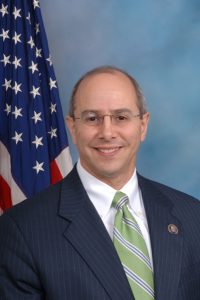
The U.S. Environmental Protection Agency’s flawed ecological risk assessment for the herbicide atrazine could negatively impact Louisiana farmers, U.S. Rep. Charles Boustany (R-LA) said.
Boustany joined 76 lawmakers in raising concerns in a letter to EPA Administrator Gina McCarthy that the EPA’s use of incorrect data for determining the risks of atrazine, which could lead to restrictions on the chemical, would harm farming.
“Farmers throughout Louisiana rely on atrazine to control vines and weeds that strangle crops, making harvest extremely difficult and taxing on farm equipment,” Boustany said. “I am proud to stand with Louisiana farmers to ensure the EPA uses the best scientific data available when releasing reports on widely used agricultural applications.”
The letter cites the EPA Science Advisory Panel’s 2012 determination that studies used in the atrazine risk assessment were “flawed.”
“Atrazine has been used for decades as an effective herbicide for tens of thousands of growers, and it is particularly important for corn, sugar cane and sorghum producers,” the letter states. “Moreover, it is one of the most thoroughly studied herbicides used today, accounting for nearly 7,000 scientific studies. Unfortunately, EPA’s draft ecological risk assessment throws its future use into doubt, an outcome that, according to many, may not be scientifically justified.”
When properly used, the letter continues, atrazine is one of the most important herbicides available to farmers. Some economic impact studies have shown that farming without the use of atrazine could cost growers up to $59 per acre.



